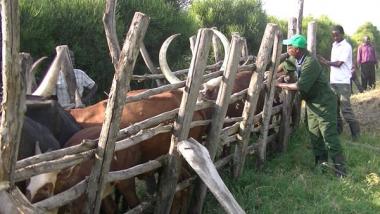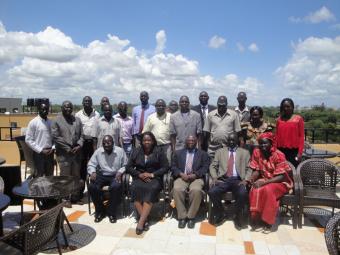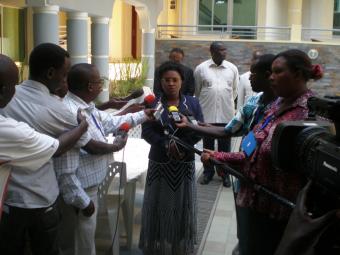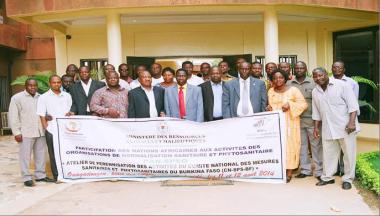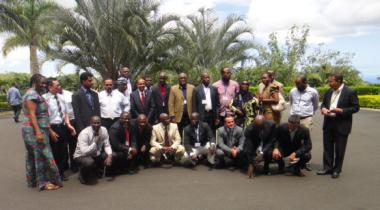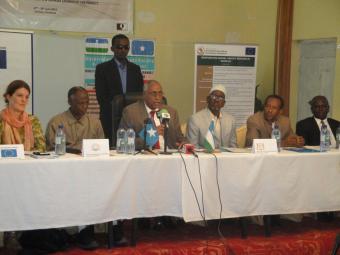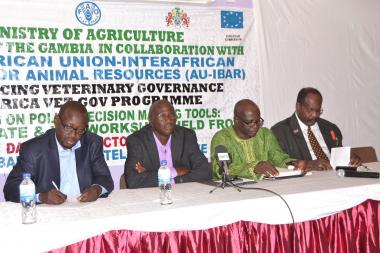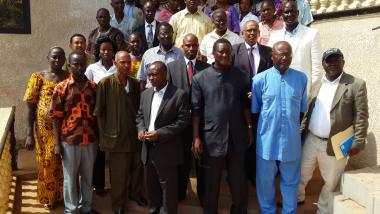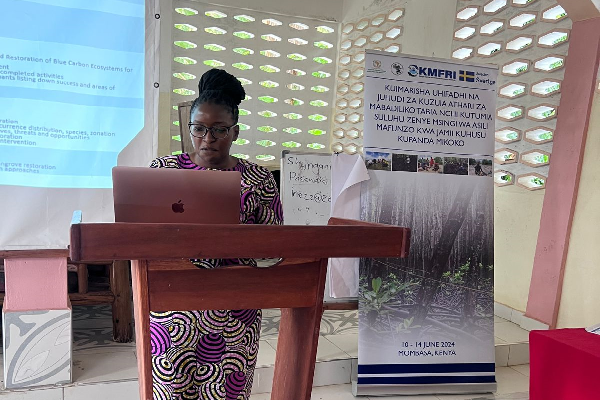
We are pleased to announce an ongoing workshop targeted at promoting conservation and climate change mitigation through nature-based approaches. This initiative, conducted in conjunction with the Kenya Marine and Fisheries Research Institute (KMFRI), focuses on the initiative "Strengthening Conservation and Restoration of Blue Carbon Ecosystems for Climate Change Mitigation and Adaptations." Part of this intervention is a workshop taking place in Gazi Bay, Mombasa, from June 10th to 14th, 2024.
AU-IBAR, with funding from the Swedish International Development Cooperation Agency (SIDA), is carrying out the project "Conserving Aquatic Biodiversity and Ecosystems in the Context of the Africa Blue Economy." This project seeks to prevent the detrimental effects of climate change on aquatic biodiversity and the environment, both of which are critical to the economies and livelihoods of AU member states. Following considerable research on the effects of climate change on aquatic ecosystems, AU-IBAR has identified essential strategies and actions to support ongoing projects, particularly those centred on nature-based solutions.
KMFRI's Mangrove Research Programme is known for its effective conservation efforts, such as the Mikiko Pamoja Carbon Credit project. Since May 2023, AU-IBAR has cooperated with KMFRI to promote the restoration of blue carbon ecosystems in Gazi Bay, Kwale County, Kenya's South Coast. The partnership intends to:
• Establish biological baselines and describe degraded mangrove regions.
• Educate and train communities on ecological restoration approaches.
• Create communal woodlots to provide alternative livelihood options.
• Promote nature-based businesses to alleviate demand on mangrove resources.
Mangroves perform an important function as carbon sinks, absorbing and storing significant amounts of Carbon dioxide, hence reducing global warming. However, Kenya has suffered considerable mangrove losses as a result of overharvesting, habitat alteration, and pollution. From 1990 to 2015, the country lost 40% of its mangroves due to population growth, poverty, a lack of education, and poor governance. Addressing these issues is critical to the health of mangrove ecosystems and their ability to fight climate change.
Previous Initiatives and Training
In August 2023, AU-IBAR helped KMFRI train community members in Gazi Bay on nature-based businesses like carbon trading, mangrove ecotourism, aquaculture farming, and beekeeping. This training aims to promote alternative livelihoods and lessen reliance on mangrove resources. The event also serves as the project's kickoff meeting, gathering community support and identifying potential places for mangrove restoration and woodlot formation.
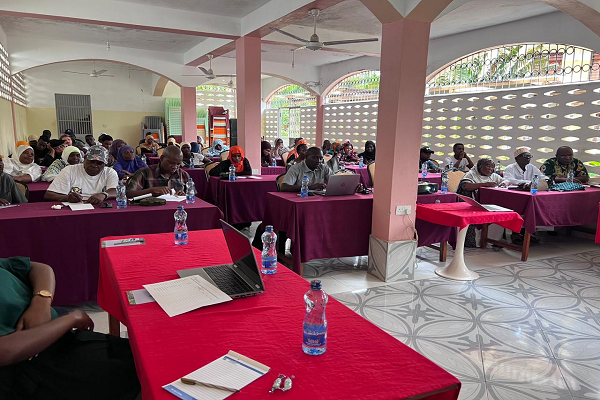
The workshop's objectives include:
• Educating 50 community members about mangrove restoration techniques such as seed collection, nursery development, site preparation, and project monitoring.
• Restoring degraded mangrove habitats to relieve demand on existing mangrove resources.
• Creating a comprehensive report that highlights the activities' obstacles, recommendations, and outcomes.
The training serves 50 Gazi Bay residents, primarily women and youth who rely on mangrove resources and play an important role in conservation efforts. The initiative's goal is to improve the sustainability of local livelihoods and the health of mangrove ecosystems by providing these community members with the information and skills necessary for ecological restoration.
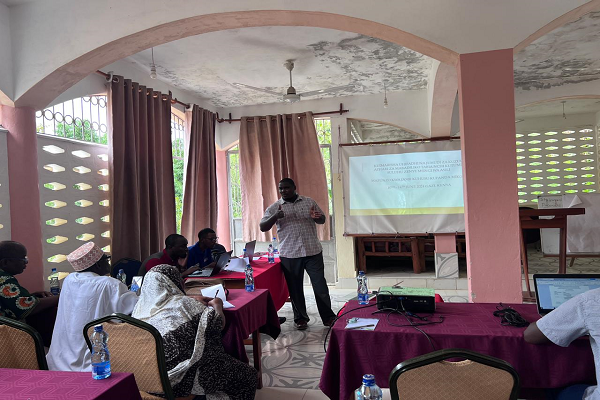
The Community Workshop and Mangrove Restoration at Gazi Bay, Mombasa, Kenya, runs for five intensive days and aims to provide participants with hands-on skills and knowledge for effective mangrove restoration. Day 1 begins with indoor training sessions and field demonstrations to provide fundamental knowledge and practical insights into restoration procedures. Day 2 focuses on field demonstrations, with participants visiting numerous degraded regions of the bay to determine ideal sites for restoration work. On Day 3, the activities include seedling collection, site preparation, and the establishment of nurseries, ensuring that the community understands the early stages of mangrove restoration. Day 4 and 5 are dedicated to the actual restoration process. On Day 4, participants will work on Avicennia marina and Ceriops tagal sites near aquaculture ponds, and on Day 5, they will restore Rhizophora mucronata in the Chale area. This comprehensive agenda guarantees that community members obtain valuable practical experience and information, encouraging long-term mangrove restoration and conservation initiatives.
This programme complements worldwide efforts such as the UN Decade of Ecosystem Restoration and the Sustainable Development Goals, resulting in a healthier and more sustainable environment for future generations.

